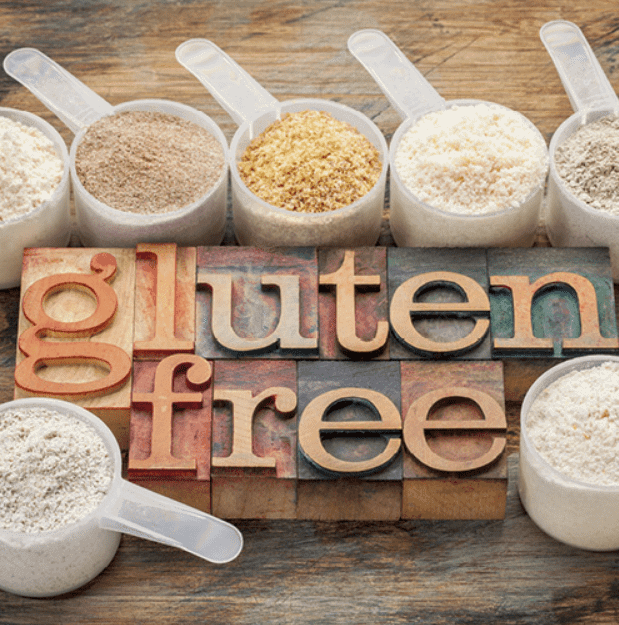
Anishka Ram
(NZRD, MSc. Nutrition and Dietetics)
There are many alternatives of gluten-free food products on the market which is a relief to many people who have Coeliac Disease or gluten sensitivity. Compared to the small selection of gluten-free foods available only a few years ago, the GF market is growing rapidly, especially in the baked goods department.[1]
Gluten-free products are processed foods
What started as a great alternative for those who could not have gluten containing products, today the gluten-free manufactured foods seem not to be as “pure” as we believed they are.
Washington State found that 30% of consumers believed GF foods were “healthier” than regular gluten containing food. The same consumer study found that 23% bought GF products to help them lose weight.[4]
In the US, gluten-free companies have already begun adding empty calories into gluten-free foods by increasing the sugar and fat content.
One of the main alternatives commonly used in gluten-free products is rice flour, followed by corn starch. Rice flour, in particular, tends to be derived from white rice rather than brown rice which can decrease the amount of protein and fiber.
Rice flour, cornstarch and other fillers
For example, Vogel’s bread also has a gluten-free option available.
Nutritional information (per 100g) | Vogel’s gluten-free sliced bread wholemeal | Vogel’s toast bread mixed grain |
Protein | 4.7g | 9.7g |
Carbohydrate | 35.4g | 34.7g |
Sugars | 4.5g | 2.7g |
Dietary Fibre | 7.3g | 4.5mg |
Sodium | 380mg | 375mg |
However, Vogel’s mixed grain bread is made of wheat flour and mixed grains while Vogel’s gluten-free bread uses wholemeal rice flour and tapioca starch. There is a difference in quality between the two options.
Effects on our gut health
Processed grains such as rice, corn and sugar do not have the same components as fiber and are unable to assist digestion. This may lead to further gut issues like feelings of discomfort and hard or loose stools.[5]
This is because our large intestine is at its best when it is being used for what its purpose is, which is to digest and move our food along the digestive system. One of the key nutrients that aid this mechanism is fiber. Fiber can either increase the bulk of our waste product (insoluble fiber) or decrease constipation (soluble fiber).
If you would like to know when similar articles will be coming out, you can Subscribe to our Newsletter and we will let you know well in advance. In the meantime, you can share the article with your friends and also share in the comments below which products you think that we should pass on during our next visit to the shop.
Remember:
If you haven’t already, please speak to your GP about your concerns to rule out any serious issues that may contribute to the symptoms you are experiencing. Also, ask for an appointment with a Dietitian who can safely guide you through dietary changes.
References
(1) Business Wire. (2020). Gluten-free Food Market Growth to Grow by $3.19 Billion during 2020-2024 | Technavio.
(2) Gelski. (2020). A CAGR of 7% forecast for gluten-free market through 2027. Food Business News.
(3) Wisniewski. (2016). Gluten Free Consumers: You’re your piece of the pie. Nielsen NZ.
(4) Hartman Group. (2017). Gluten-Free: Simply a Way to Healthier Eating?
(5) Gluten Free Society. (n.d.). Processed Gluten Free Food Causes Disease.






